The work-family conciliation in a group of entrepreneurial women leaders from the coffee region
DOI:
https://doi.org/10.25057/21452776.1422Keywords:
work-family conciliation, entrepreneurship, working womanAbstract
The present research has the objective of analyzing the management that a group of women entrepreneurs from the Coffee Region give to the work-family conciliation. The method is descriptive and cross-sectional, and the research design corresponds to a case study based on in-depth interviews applied to seven women entrepreneurs from the coffee region. According to the research, women feel that the greatest implication of being pillars of the home and having an enterprise is to manage the times to fulfill the activities that both roles demand of them. It is stated that the decision to undertake was taken to care for their families and generate income for the home; however, the women found that the balance of these two spheres is exhausting, as the activities take a long time and even deprive them of space for themselves. It is concluded that there is a notable need to establish a balance between work and family, because the well-being of the environment in which they develop depends on this. In addition, the interviewees highlighted the importance of establishing strategies to develop activities other than those at home, which allow them to feel comfortable with themselves and transmit emotional stability to their family. It is evident that the development of household and entrepreneurial activities often causes a work overload that translates into working hours of up to 19 hours.
Author Biographies
Maria Camila Cortés Arcila, Universidad EAFIT
Magister en Administración de la Universidad EAFIT.
Johnny Javier Orejuela Gómez, Universidad EAFIT
Jefe del Departamento de Psicología de la Universidad EAFIT.
Coordinador docente del Semillero de Investigación en Clínica del Trabajo y de las Organizaciones
References
Berenzon-Gorn, S., Saavedra-Solano, N. y Alanís-Navarro, S. (2009). Estrategias utilizadas por un grupo de mujeres mexicanas para cuidar su salud emocional: auto aceptación y apoyo social. Salud Pública de México, 51(6), 474-481. https://doi.org/10.1590/s0036-36342009000600005
Bustamante Sepúlveda, F. y Flores Faúndez, M. (2008). Conflicto trabajo-familia, equilibrio y bienestar en mujeres trabajadoras de una empresa de retail dependiendo de su rol de proveedor [tesis de grado, Universidad de Talca]. Repositorio Institucional Utalca. http://dspace.utalca.cl/handle/1950/11410
Frone, M., Russell, M. y Cooper, M. (1997). Relation of work-family conflict to health outcomes: a four year longitudinal study of employed parents. J Organ Behav, 70(4), 325-335.
Garrido García, N., Gallegos Sánchez, A. y Hernández Vela, H. (2015). Mujeres ejecutivas e enteracción Trabajo-Familia: evidencias en México. Revista Global de Negocios, 3(2), 83-101.
Greenhaus, J. y Parasuraman, S. (1994). Work-family conflict, social support and well-being. Davidson MJ, Burke RJ, 213–229.
Gómez, S. y Marti, C. (2004). La incorporación de la mujer al mercado laboral: Implicaciones personales, familiares y profesionales, y medidas estructurales de conciliación trabajo-familia (No. D/557). IESE Business School.
Gómez, V. y Jiménez, A. (2015). Corresponsabilidad familiar y el equilibrio trabajo-familia: medios para mejorar la equidad de género. Polis, Revista Latinoamericana, 14(40), 1-15.
Herrera, P. (2000). Ról de género y funcionamiento familiar. Revista Cubana Medicina General Integral, 16(6), 568-573. http://scielo.sld.cu/pdf/mgi/v16n6/mgi08600.pdf
Halpern, D., & Murphy, S. (2004). From Work- Family Balance to Work- Family Interaction. London: Routledge.
Idrovo, S. (2006). Las políticas de conciliación trabajo-familia en las empresas colombianas. Revista Estudios Gerenciales, 22(100), 49-70. https://www.icesi.edu.co/revistas/index.php/estudios_gerenciales/article/view/199
Ley 1468. Artículo 236. Descanso remunerado en la época del parto. Colombia, 30 de junio de 2011.
Ley 1090. Por la cual se reglamenta el ejercicio de la profesión de Psicología, se dicta el Código Deontológico y Bioético y otras disposiciones. Septiembre 06 de 2006.
López, E., Ponce, M., Findling, L., Lehner, P., Venturiello, M. P., Mario, S., y Champalbert, L. (2011). Mujeres en tensión: la difícil tarea de conciliar familia y trabajo. Población de Buenos Aires, 8(13), 7-25. http://www.redalyc.org/articulo.oa?id=74018029001
Macías, N., y Cedeño, R. (2014). La inserción de las mujeres en el mercado laboral. ECA Sinergia, 5(1). https://revistas.utm.edu.ec/index.php/ECASinergia/article/view/141/110
Moccia, S. (2011). Los posibles beneficios de la conciliación. Acciones e Investigaciones Sociales, 30, 135-154. https://doi.org/10.26754/ojs_ais/ais.201130607
Muñiz Terra, L. M. (2019). Aproximaciones a las desigualdades de género en Argentina: un estudio de la conciliación familia y trabajo en el sector petrolero. Revista Colombiana de Sociología, 42(1), 0-2. https://doi.org/10.15446/rcs.v42n1.68755
Pichler, F. (2009). Determinants of Work- life Balance_ Shortcomings in the Contemporary. Measuremente of WLB in Large-scale Surveys. Social Indicators Research: An International and Interdisciplinary Journal for Quality-of-Life Measurement, 92, 449-469. https://link.springer.com/article/10.1007/s10834-014-9408-1
Ruiz, S., Bajo, G. (2006). Conciliación de la vida familiar y laboral. Feminismos, 8, 131-142. http://rua.ua.es/dspace/handle/10045/1185
Resolución 8430. Por la cual se establecen las normas científicas, técnicas y administrativas para la investigación en salud. Octubre 04 de 1993.
Sierra, Y., Rodríguez, J. y Guecha, J. (2009). Diseño de un programa de prevención de factores de riesgo psicosocial, a nivel primario, secundario y terciario. En M. C. Aguilar y E. Rentería (Eds.). Psicología del trabajo y de las organizaciones. Reflexiones y experiencias de investigación. (pp. 477-507). Bogotá: Universidad Santo Tomás
Spector, P.; Fox, S.; Penney, L.; Bruurserma, K.; Goh, A.; Kessler, S. (2006). The dimensionality of counterproductivity: Are all counterproductive behaviors created equal? Journal of Vocational Behavior. 68 (3). 446-460. https://doi.org/10.1016/j.jvb.2005.10.005
Ugarteburu Gastañares, I., Cerrato Allende, J. y Ibarretxe Zorriketa, R. (2008). Transformando el conflicto trabajo/ familia en interacción y conciliación trabajo/ familia. Departamento de Psicología Social y Metodología de las ciencias del comportamiento. E.U. de Relaciones Laborales. UPV/EHU, 18, 17-41.
Torns, T. (2008). El trabajo y el cuidado: cuestiones teórico-metodológicas desde la perspectiva de género. Revista de Metodología de Ciencias Sociales, 15, 53-73.http://revistas.uned.es/index.php/empiria/article/viewFile/1199/110
How to Cite
Downloads
Support agencies:
Universidad EAFIT, Semillero de Investigación Clínica del Trabajo y de las OrganizacionesPublished
Issue
Section
License
Copyright (c) 2021 Institución Universitaria de Envigado

This work is licensed under a Creative Commons Attribution-NonCommercial-ShareAlike 4.0 International License.
| Article metrics | |
|---|---|
| Abstract views | |
| Galley vies | |
| PDF Views | |
| HTML views | |
| Other views | |





